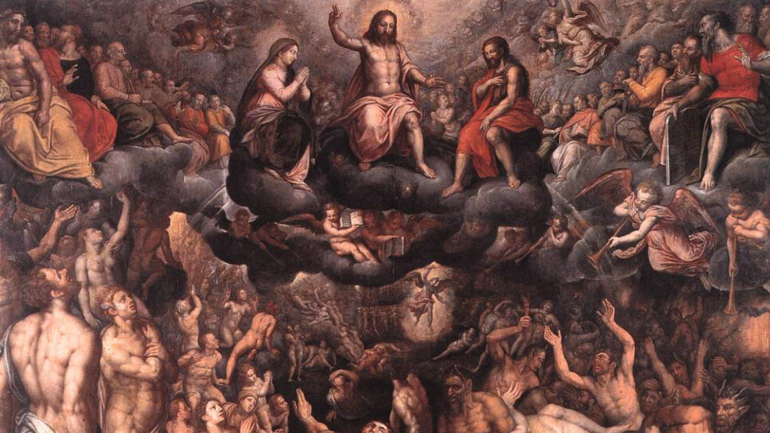Praying for the Dead

“Whoever utters blasphemy against the Holy Spirit will be pardoned neither in this age nor in the age to come.” (Mt 12:32)
What is this “age to come”? That there are consequences for sin is a fact. If we accept that there is only Heaven and Hell, and that it is impossible to enter Heaven with unforgiven sin, then it would follow that we are doomed to Hell. Therefore, there must be a period of final purification for certain temporal sins.
Our mortal sins are washed away when we make an honest confession. It is important to understand that the purifying fire spoken of for these lesser faults comes from God and is different from the fire of Hell, which comes from the evil one. Souls in purgatory - “The Church Suffering” - can do nothing more, neither good nor bad. These are souls awaiting cleansing, who cannot pray for themselves because their time of earning merit has ended.
Scripture confirms that the Church is composed not only of saints in the making but also of sinners. The parable of the weeds (Mt 13:24–30) and Jesus’ comparison of the Church to a fishnet (Mt 13:47–50) testify that separation happens only at the end. From the very beginning, the Church has been a “mixed bag”; even Judas Iscariot, the thief and traitor, was chosen by Jesus Himself.
In 2 Maccabees 12:39–42, we read of the pious act of the valiant Judas Maccabeus. When he and his men were burying comrades fallen in battle, they discovered that the slain soldiers had been secretly practicing idolatry. After praying to the Lord to pardon the sins of their dead companions, Judas took up a collection to offer a sacrifice in Jerusalem as atonement, because he and his companions believed in the resurrection of the dead.
Why did ancient Jews pray for their dead? For the same reason, they prayed for the living, out of fraternal love, confident that such spiritual works would benefit those who had died. Many inscriptions on ancient Christian tombstones ask the living to intercede for those buried within. Clearly, from early times, the Church has offered prayers and sacrifices for the faithful departed. Today, we offer the greatest sacrifice for them, the Holy Eucharist.
Most people who die require purification before they are ready to live with God forever. “Nothing unclean shall enter [heaven] … only those written in the Lamb’s book of life” (Rev 21:27). Our prayers can help that process. Besides, we do not know who is in Hell. Hence, we ought to pray in hope even for the worst sinner. God does not reject any penitent soul, even one who has been wicked all his life, yet repents at the last moment.
The good thief, who gained Paradise, represents those who accept their suffering as salvific, as a means of purification. As a dying man, he recognized in another dying man the Source of Life, accepted Him as Savior and Messiah, and so was able to suffer martyrdom for His sake. He asked Jesus to save him from his sins, unlike the bad thief who only wanted to be saved from the cross (Lk 23:39–43). Souls in Hell are damned, but others, after purification, will receive salvation and behold what is called the Beatific Vision, the eternal sight of God’s face, which grants perfect blessedness and complete union with Him. This is Heaven. The Christian hope of Heaven anchors and transforms our lives, even while we are on earth.
Purgatory is the name given to this process of purification as it continues after death. Though the term itself does not appear in Scripture, the reality it describes is implied in Scriptural truth. God does not purify us instantly in this life by waving a magic wand. Since His work of healing us from the effects of sin is often painful now, just as surgery for the body is painful, the purgatorial process will likely be painful as well. Yet, just as a surgeon’s cauterization brings healing to our bodies, so too any pain we might experience in Purgatory will heal our souls.
In the end, it is all the work of God’s mercy.








